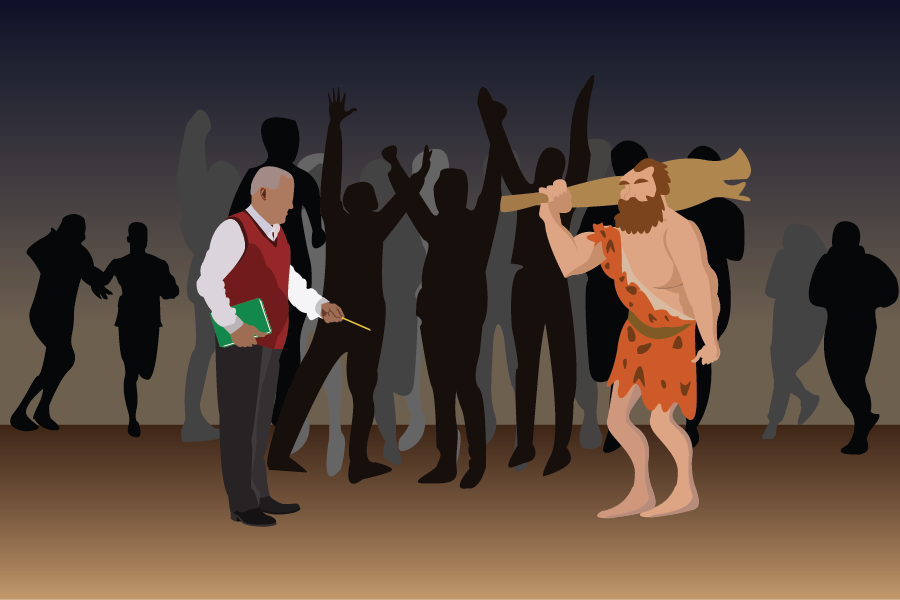
UC Davis professor conducts research on how people are driven to flock
There’s an assumption that the tendency to flock comes from an animal’s basest instincts and that if humans were to put a little more thought into the decisions they make, those decisions would no longer be motivated by the need to impress other people. However, based on recent research conducted by UC Davis assistant professor of communication Seth Frey, humans get caught up in a sort of “I-think-you-think-I-think” mentality even when using reasoning.
Frey studied this behavior by having subjects play games and studying their behavior during a game.
“We have a game and there’s a bunch of choices arranged in a circle and if you pick one and someone picks the one right ahead of you, they get a point,” Frey said. “It’s like a really big rock-paper-scissors.”
Researchers used three different games that involved different kinds of reasoning to see if the subtle differences would matter to players.
“We wanted a simple situation to cleanly look at how much people think what other people are thinking about,” said professor Robert Goldstone in the Department of Psychological and Brain Sciences and Program in Cognitive Science at Indiana University. “In the standard game of rock-scissors-papers, it is hard to see how many levels of thinking about thinking people engage in. That’s why we came up with a 24-option variant of RSP.”
The subtle differences in the strategies of the three games used didn’t matter to the players, who got caught up in trying to one-up another player.
“The whole time, you’re chasing someone who’s trying to chase you,” Frey said. “So you end up being really close to each other in the choices you’re making. By trying to one-up each other, you end up doing this dance together around the circle. We call it flocking behavior because [in trying to one-up each other], we end up making choices that are close to each other…we’re stuck together and we’re moving together. Like a flock of birds. A flock of birds are not just aligned near each other in position, they’re also aligned near each other in velocity.”
The theory that humans flock even when using human reasoning processes shows that these processes could contribute to complex social dynamics that are normally considered to be based on emotional, reactive reasoning.
“As a social species, our decisions often depend on our expectations about how other people will think and act,” said Robert Hawkins, a fifth-year Ph.D. student at Stanford University. “These experiments demonstrate that the complex dynamics of human groups may be driven by smarter and more sophisticated social representations than popular models give us credit for.”
Written by: Kriti Varghese — science@theaggie.org



